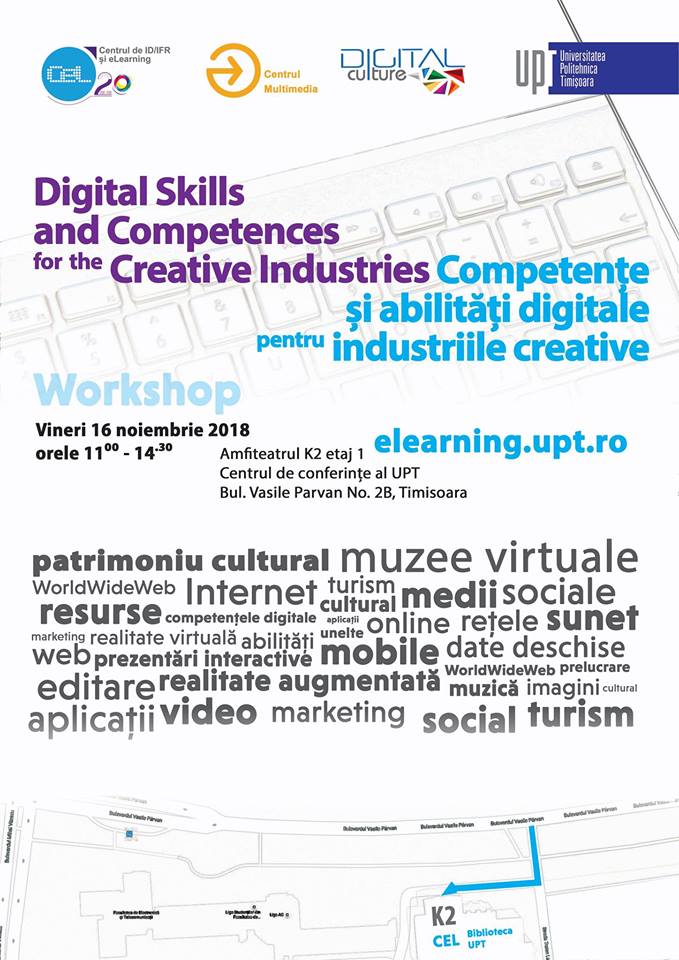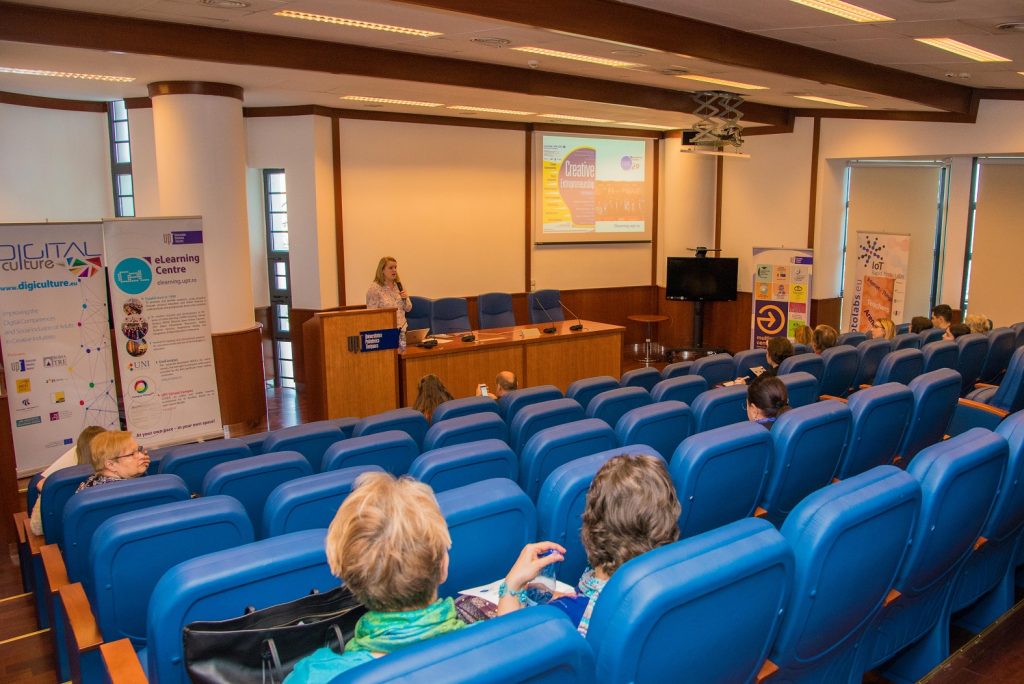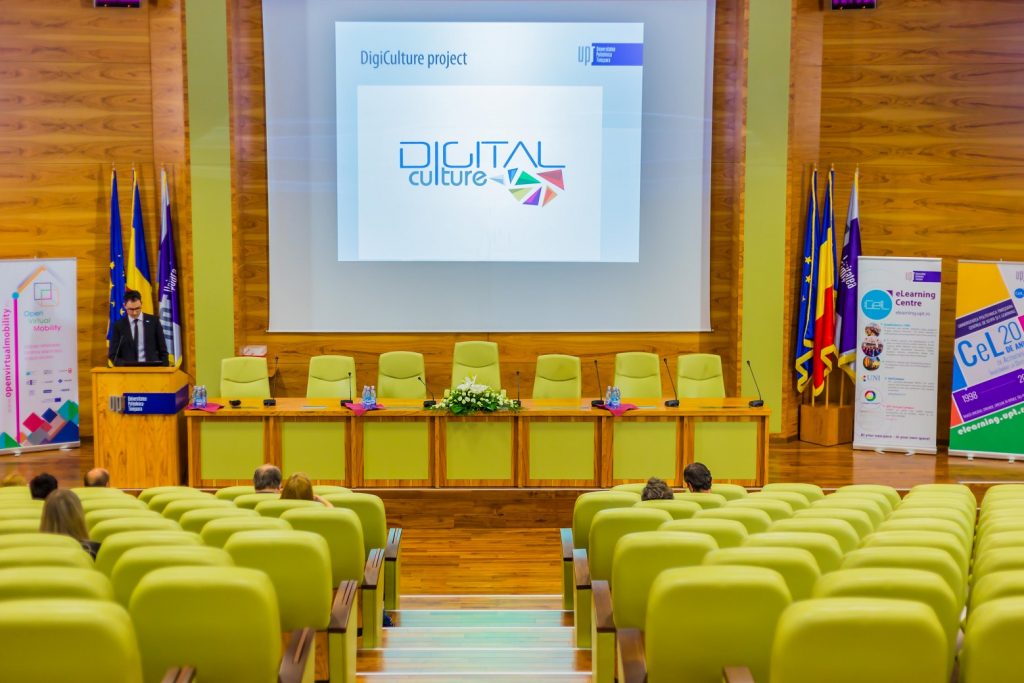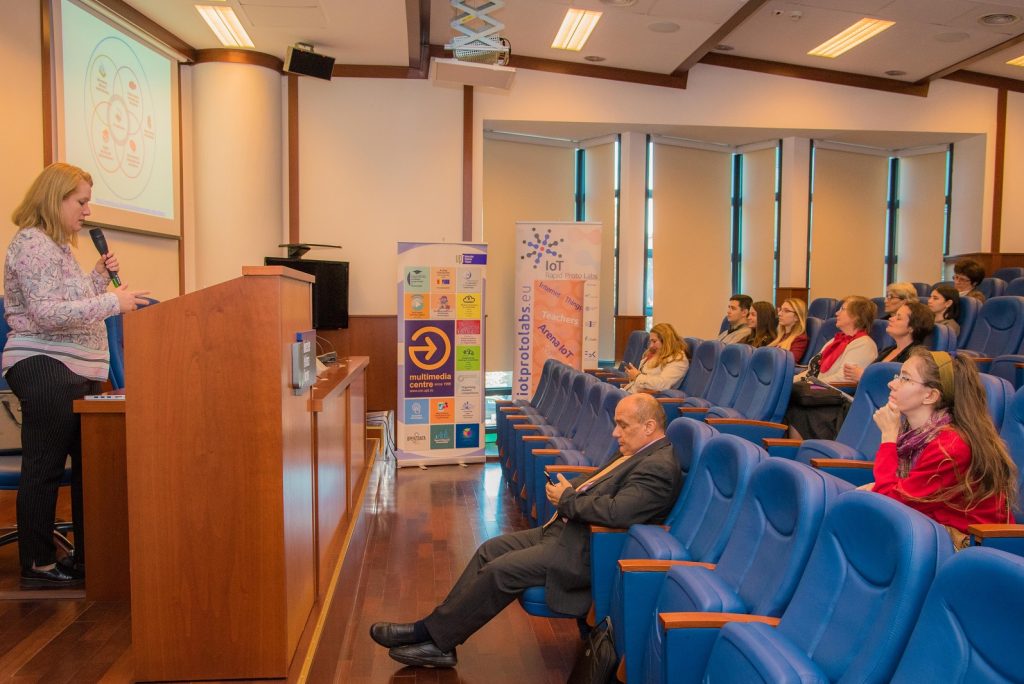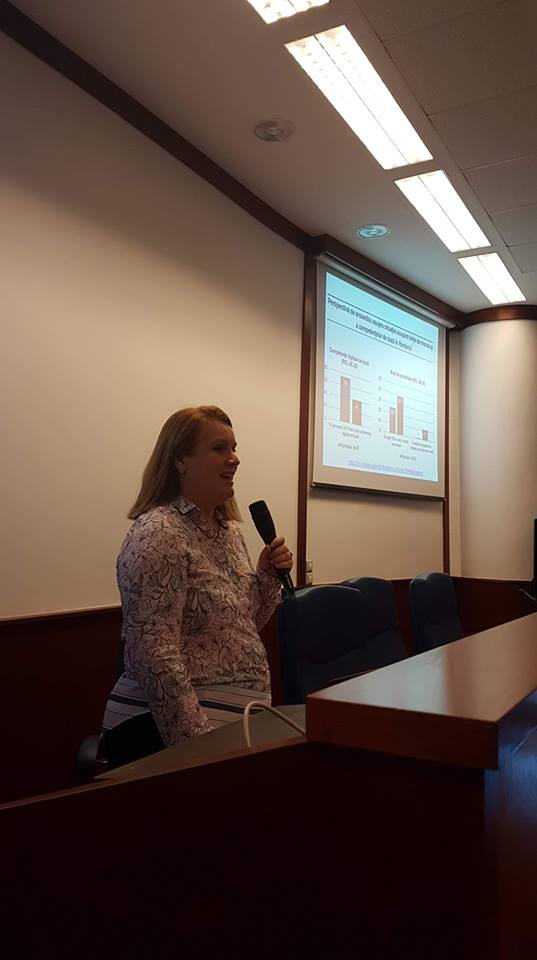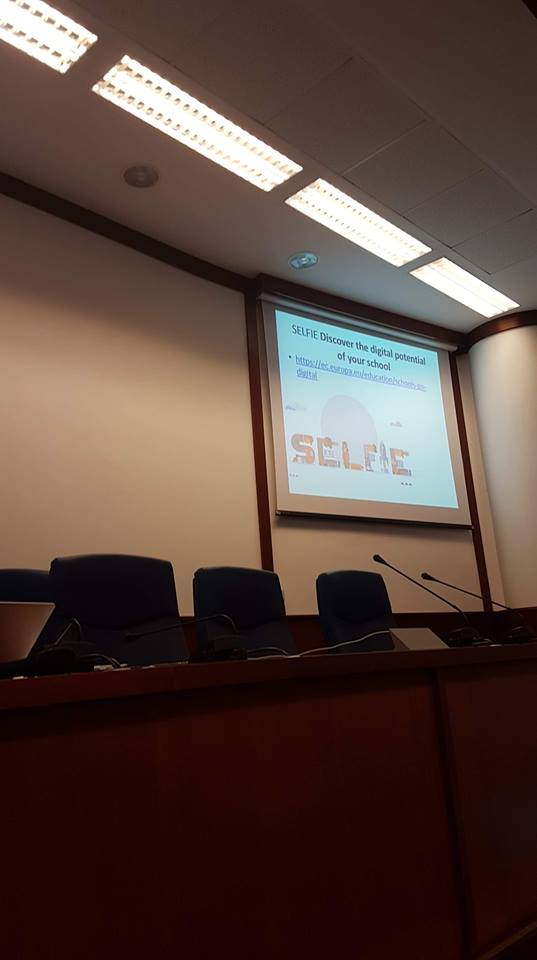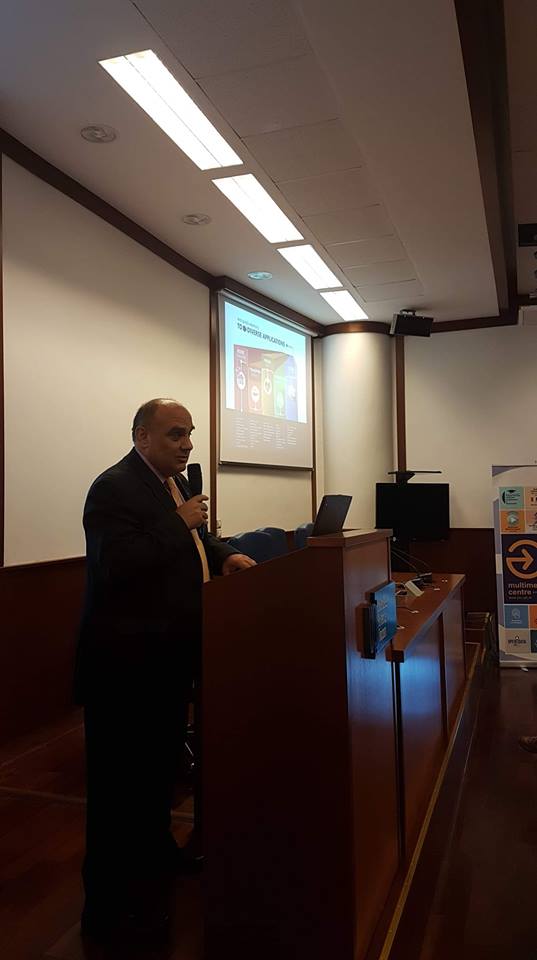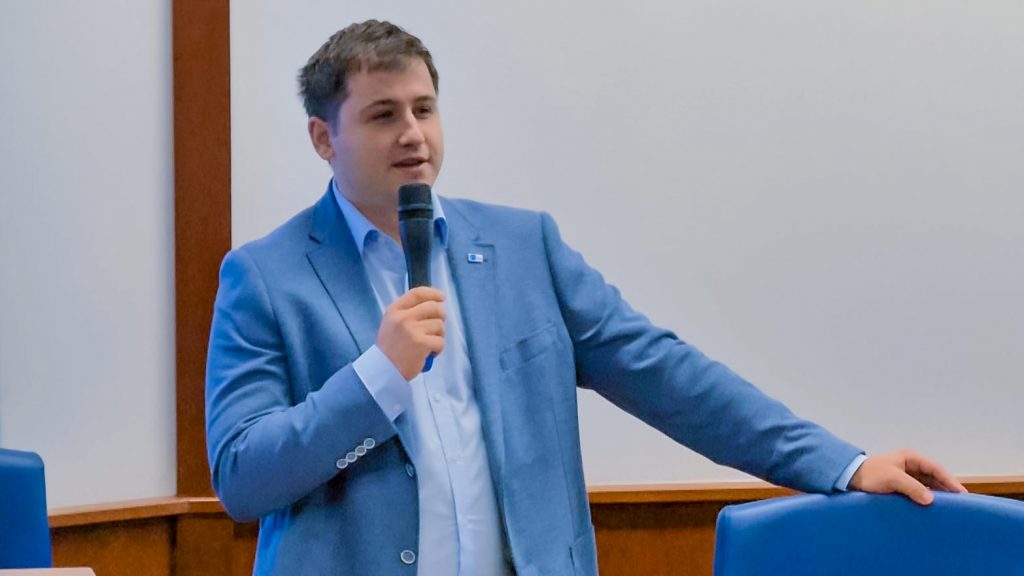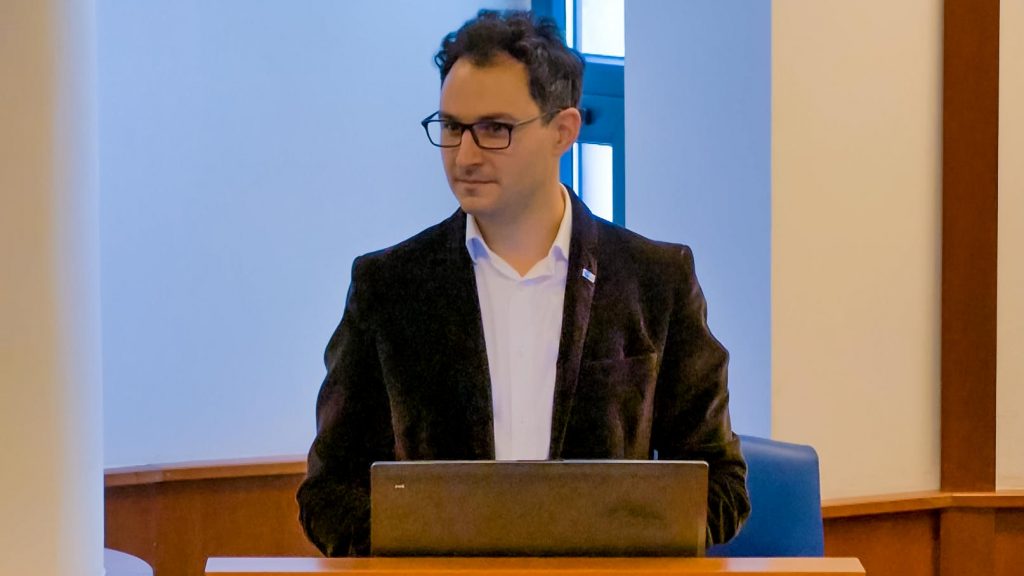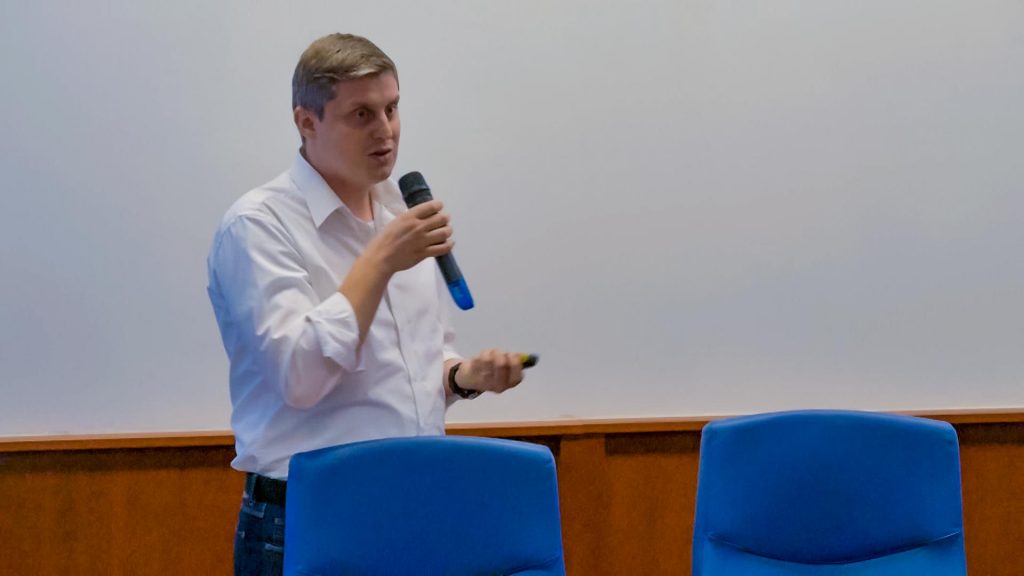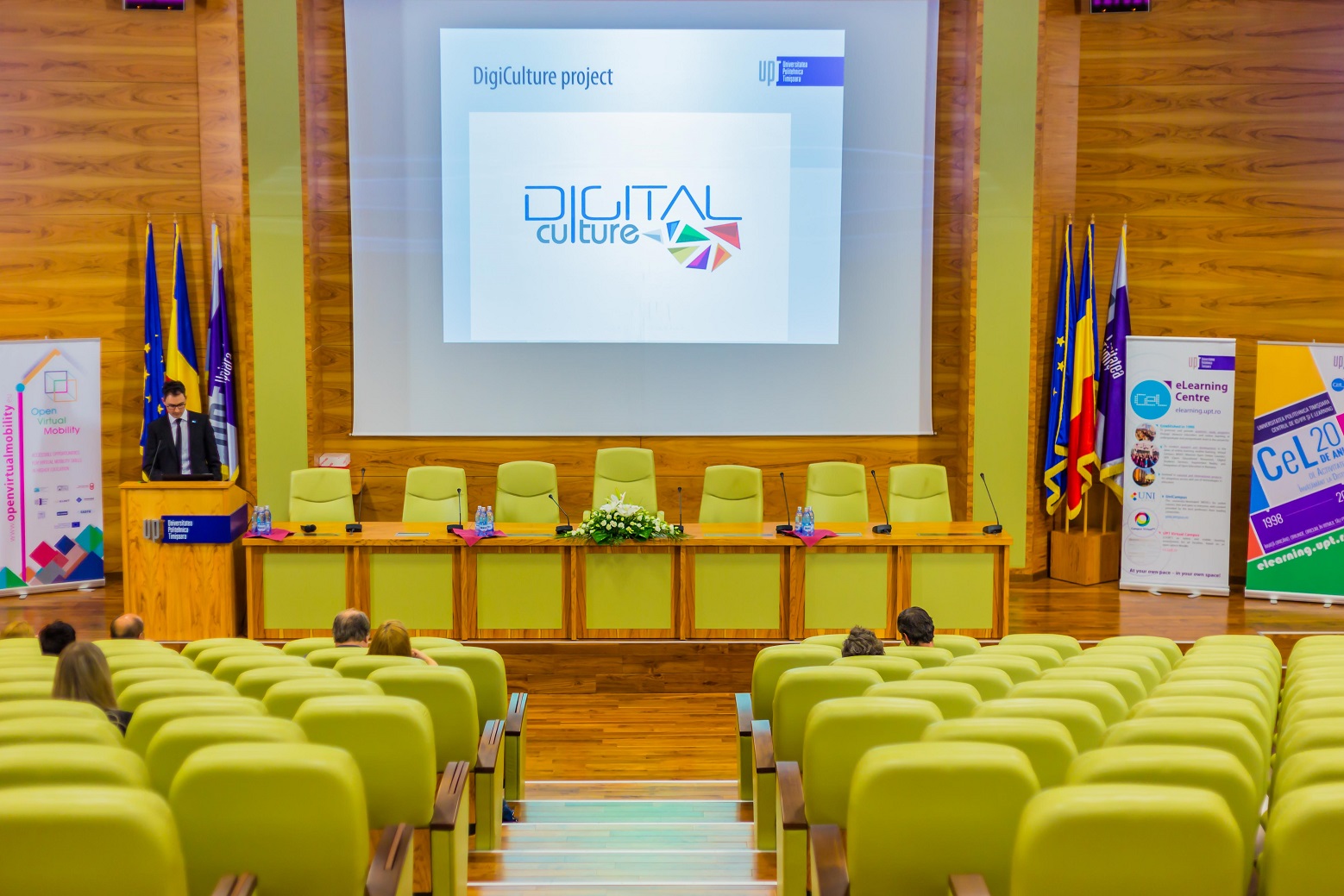
Workshop Digital Skills and Competences for the Creative Industries
What are creative industries and what is their impact on the global economy? What are digital skills and digital abilities and how are they validated in the field of creative industries? How can digital skills be introduced into Europass CV? How can we access, use and integrate various online tools and mobile applications?
Practical examples of using and integrating various web applications, mobile, digital marketing, augmented reality, virtual reality, editing and processing information online, social media and networks, using video and image applications, etc.
Presenting success stories in the field of digital marketing and virtual museums as well as cultural heritage, including Europeana were the points of interest of this workshop.
The presentations of this workshop were part of the strategy of the Erasmus + DigiCulture project - "Improving the Digital Competences and Social Inclusion of Adults in Creative Industries", to build a free online course.

The attendance was free, the presentations were held in Romanian and English and a certificate of participation was issued.
The workshop was broadcasted live, online HERE and available online in UniCampus
Creative industries are defined as: Advertising and marketing, Architecture and landscapes, Crafts and other fields of cultural heritage, Design: product, fashion graphics and design, Film, TV, video, radio and photography, IT, digital economy and games, Museums , galleries and libraries, Music, visual arts and performing arts.
Dr. Diana Andone: Digital Competences for Creative Industries and the DigiCulture Project.
Creative industries are defined as: Advertising and marketing, Architecture and landscapes Crafts and other areas of cultural heritage, Product Design, Graphics and Fashion Design, Publishing and Media, Film, TV, Video, Radio and Photography, IT, digital economy and games, museums, galleries and libraries, music, visual arts and shows. The creative economy is not just one of the fastest growing sectors of the world economy, but it is also highly transforming, with a certain appeal to the younger generation, with a role in creating jobs and community actions.
Dr. Diana Andone is Director of the e-Learning Center at the Politehnica University of Timisoara with responsibilities in the planning and implementation of distance learning and integrating the use of online learning technologies for all forms of education, through the Virtual Campus of UPT - CVUPT. Dr. Andone is a lecturer in multimedia and web technologies, with an intensive research activity at international level through various European-funded projects and multiple publications. Passionate about the use of technologies in everyday life, Diana promotes the use of open resources and MOOCs, developing UniCampus - online courses in Romania. The list of publications includes 9 books and 82 papers presented at international conferences, being a referent for 12 International Conferences, 4 magazines, 7 awards for the best work, obtained at different conferences and since 2010 she is co-chair at the WWW / IADIS International Conference on the Internet. In recent years, she has been involved in 21 projects with European funding. In 2012, she received the EDEN (European Distance and E-Learning Network) membership and in 2014 she was elected to the EDEN Executive Committee.
Prof.Dr.Ing. Radu Vasiu: Internet of Things and creative industries.
Prof. Radu Vasiu is a professor at the Faculty of Electronics and Telecommunications of the Politehnica University of Timisoara. His recent research focuses on e-learning, multimedia, web technologies, open data and smart cities. He is the President of the Senate of the Polytechnic University of Timisoara and the Director of the Multimedia Research Center. He has published 12 books and has presented over 100 works at various international conferences. He was part of in 28 international research and cooperation projects and is part of 7 international professional associations.
Avi Cicirean: Digital Marketing.
As an entrepreneur, Flaviu Cicirean has founded two landmark companies for the business environment, both in Romania and Europe: BRAND EMOTION and BRAND MINDS. The first of these develops and curates the sound identity of some of the biggest brands in Romania (BMW, Mini, Hornbach, Băneasa Shopping City, Radio21, VibeFM, Antena1, RadioZU, ZU TV), with over 20,000 commercials created.
BRAND MINDS wants to be an authentic source of inspiration for people, so that they create a better world for both them and the generations that follow.
The company has now become the market leader in the business events industry in Central and Eastern Europe, and in the autumn of 2017 it entered the Asian market, the first event being organized in Singapore.
MUSICAL INDUSTRY
In addition to the entrepreneur status found in the above projects, Flaviu is also a musical producer. His professional career in this industry began in the late 1990s, when he founded the band called Activ. The experience as an artist was followed by 13 years in radio, when he was Creative Director at Radio 21, Vibe FM and Radio ZU.
A less-known information to the general public is that besides all these activities, Flaviu also collects works of contemporary art, a passion that is not hard to justify in terms of affinity with the creative industries
Dr. Mugur Mocofan: How to search through multimedia databases.
Șl. dr. ing. Muguras Daniel Mocofan received his PhD in Electronic Engineering and Telecommunications from the Politehnica University of Timisoara, Romania in 2003. His research interests are in the field of multimedia databases, image processing, dynamic textures, smart cities, mobile applications, e-learning, multimedia and web technologies. Interesele sale de cercetare sunt în domeniul bazelor de date multimedia, procesarea imaginilor, texturi dinamice, orașe inteligente, aplicații mobile, e-learning, multimedia și tehnologii web.
Vlad Mihaescu: LinkedIn for the creative industries.
Dr. Vlad Mihăescu has a doctorate in MOOCs educational and technological models and has a 9 years experience as a trainer in areas such as multimedia, social media, e-tourism, e-learning, usability, programming, soft skills and leadership. Author of over 20 scientific papers and book chapters published at international conferences and magazines, Vlad has an entrepreneurial experience in ITC, event organization and tourism. He is currently executive director of Nanotech, a consultancy and training company, an associate professor of UPT, and a member of the CeL team. Vlad is the only licensed facilitator in the Central and Eastern Europe of the course Lead Without a Title by Robin Sharma.
Dr. Silviu Vert: Digital Reality for the Creative Industries.
Șl. dr. ing. Silviu Vert is active in the Department of Communications of the Politehnica University of Timisoara. In 2015 he completed his doctoral studies on exploring open data in augmented reality applications. He is also a developer of the UPT Virtual Campus e-Learning platform. Silviu is actively involved in advocacy activities in "open government" at local and national level.
Arthur Csertus: Hello App: Teaching students to create mobile applications from scratch.
Arthur Csertus is an entrepreneur and software engineer from Timisoara, with German and Hungarian origins. He is focused on growing his company, "Cobalt Sign", and the "Ready Set Holiday!" App downloaded over 1.5 million times. Arthur is keen to work with the latest technologies and create wonderful products for the company and customers. He is actively involved as an organizer or speaker in local and community events, promotes technical skills, entrepreneurship and educational topics.
Radu Ticiu: How to win a hackathon.
Radu Ticiu is promoting entrepreneurship in Timisoara and leading Startup Hub, Seedcamp mentor, TiMoDev founder, CoderDojo champion & promoter.
Maria Rosaria Re: MOOC design for cultural heritage.
How to develop relationship and work skills with those who are preparing to become tutors.
Maria Rosaria Re is a PhD Student in Culture, Education and Communication at the University of Roma Tre in collaboration with University Foggia. She used to be temporary researcher in the academic year 2015/2016, Department of Education – Università Roma TRE, carrying out research work in interactive teaching and learning online with specific reference to MOOC (Massive Online Open Courses) employment in museum education. She has been cooperating with Laboratory of Experimental Research and Centre for Museum Studies (University of Roma Tre) since 2013 and took part in national research projects and European Projects. Her researcher concerns are innovative teaching practiced in primary and secondary school education, transversal skills development in formal and informal learning context, museum education, critical thinking skills promotion.
Mark Frydenberg: Basics of virtual reality.
Mark Frydenberg is Senior Lecturer at Bentley University, a successful author of the Cengage Learning series. Mark's professional interests include the use of technology in education. He is the Director of CIS Learning and Technology Sandbox (http://cis.bentley.edu/sandbox) and is a frequent speaker at conferences on the use of web 2.0 technologies.
